Best HR Software Solutions for Small Businesses in 2025
Discover the top 10 HR software tools for small businesses in 2025 that streamline payroll, hiring, and workforce management in one smart platform.
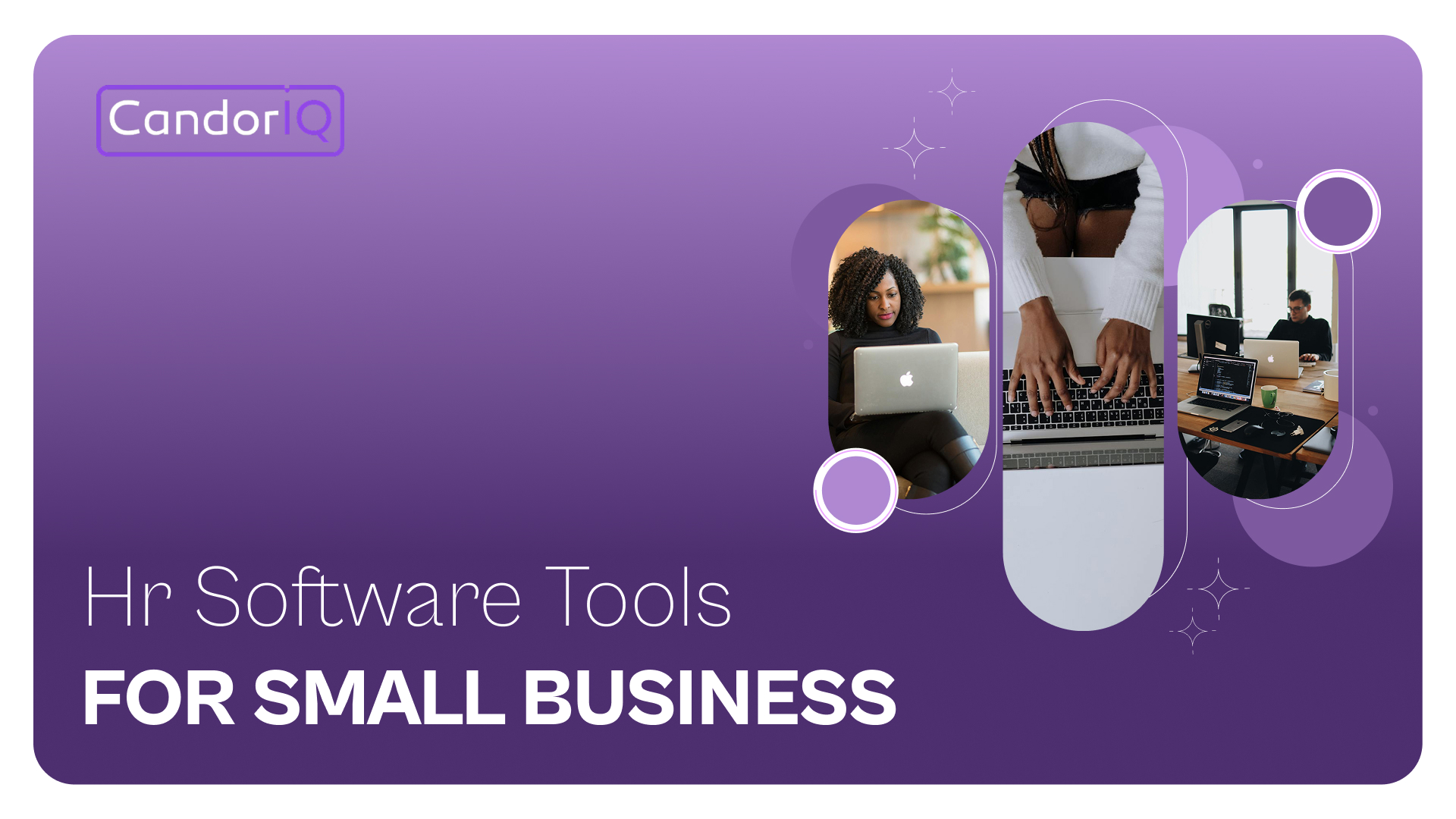
As a Chief People Officer or HR Manager, you’re constantly balancing complex priorities: running accurate payroll, managing employee benefits, keeping up with compliance, optimizing workforce planning, and staying within budget, all while driving strategic workforce decisions.
According to a June 2025 industry report, 65% of small businesses are already using HR software, and an additional 28% are actively planning or evaluating adoption. This highlights a clear global trend: most small firms either have HR software in place or intend to implement one soon.
In this article, we’ll explore the best HR software for small businesses that streamlines your HR and Finance operations, improves pay transparency, and enhances employee engagement.
How to Choose the Right HR Software for Your Business?
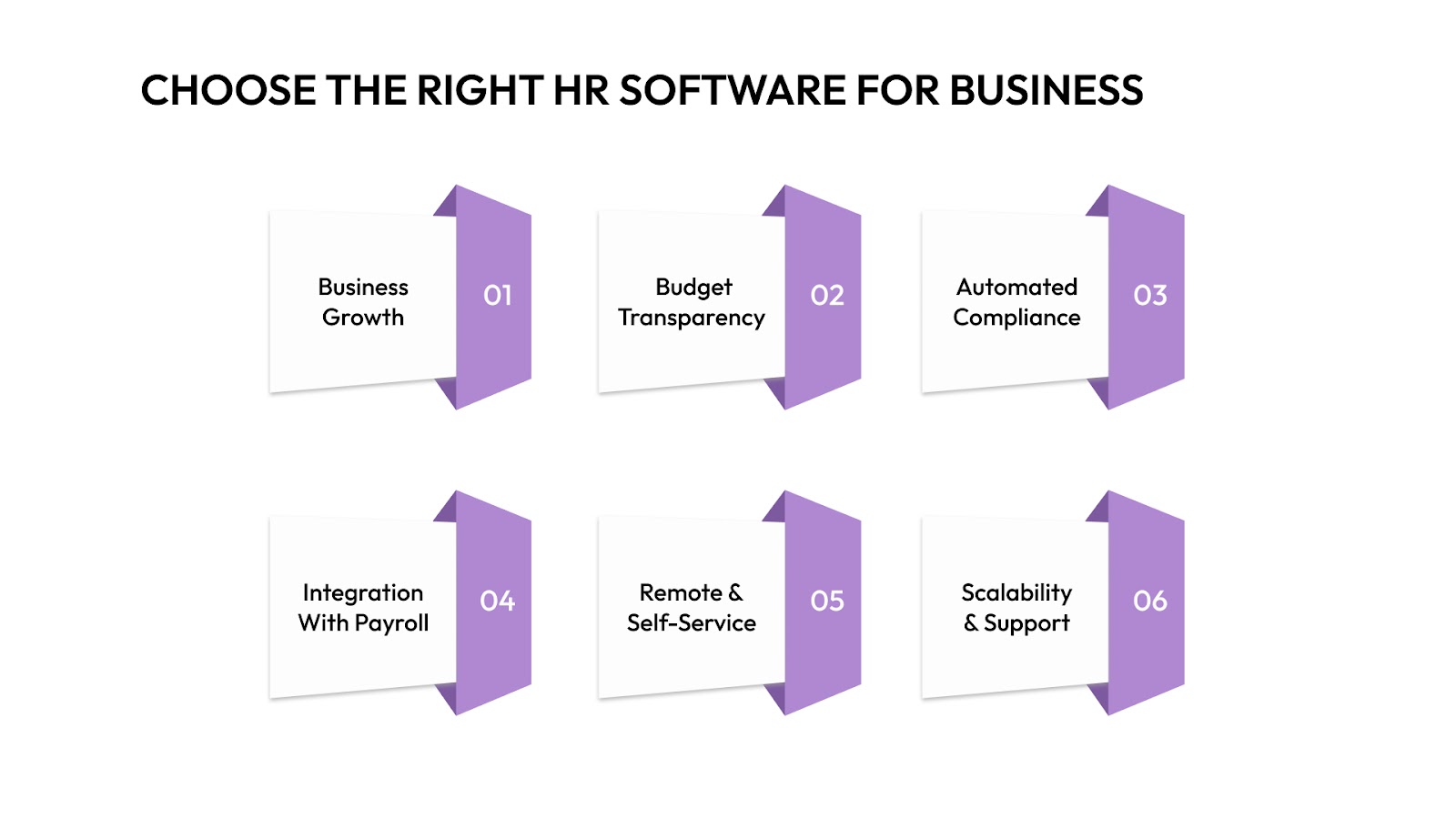
Selecting the best HR software for small businesses means finding a solution that fits your team’s current needs and supports future growth. Instead of just comparing feature lists, focus on how well the platform integrates with your existing processes and scales with your company's growth.
Here are the key factors to evaluate:
1. Business Size and Growth Plans
Will the platform support your projected team size in 6–12 months? Choose software that scales with your headcount, supports multiple locations, and adapts to changing org structures.
2. Budget and Pricing Transparency
Avoid hidden fees by choosing vendors that offer transparent, modular pricing. Look for per-user rates, tiered plans, or all-in-one bundles based on your team’s size and needs.
3. Compliance and Tax Automation
A robust HRIS should stay current with employment laws, automate tax filings, and mitigate compliance risk with built-in alerts and reporting capabilities.
4. Integration with Payroll, Accounting, and ATS
Ensure seamless syncing with systems like QuickBooks, Workday, or Greenhouse. Native integrations save hours in data transfers and reduce costly errors.
5. Remote Work and Employee Self-Service
Prioritize tools that offer mobile access, secure cloud-based portals, and allow employees to manage their data, benefits, and leave, especially if your team is hybrid or distributed.
6. Scalability and Support
As your operations grow, you’ll need customizable workflows, role-based permissions, and responsive support. Look for platforms that offer onboarding assistance and 24/7 customer support.
Pro Tip: The best HR tools seamlessly integrate automation, analytics, and an intuitive user experience, providing strategic visibility without a steep learning curve.
Now that you know what to consider when evaluating HR software, this table offers a side-by-side comparison of leading platforms based on pertinent factors.
Also Read: How to Create Your Pay Ranges

Comparison Table: Top HR Software Tools at a Glance
Choosing the right HR software can be overwhelming, given the numerous options available on the market. To make your decision easier, here’s a quick-reference table that compares the leading HR platforms side by side.
Use this table to weigh your priorities, whether it’s pricing, features, or global support, and find the best HR software for small businesses to match your needs.
Each of these platforms brings unique strengths to different types of businesses.
Software Breakdowns–Top 10 Software Solutions for SMBs in 2025
With numerous platforms available, finding the right HR software can be a daunting task. Most tools today are more powerful, modular, and budget-friendly than ever, especially for small and mid-sized businesses.
In fact, according to a 2025 report by Gartner, over 72% of SMBs using HR software have achieved improved payroll accuracy, enhanced compliance tracking, and increased overall HR efficiency within the first year of adoption.
Below, we break down the best HR software for small businesses, tailored to companies prioritizing ease of use, compliance, analytics, or global hiring.
1. CandorIQ
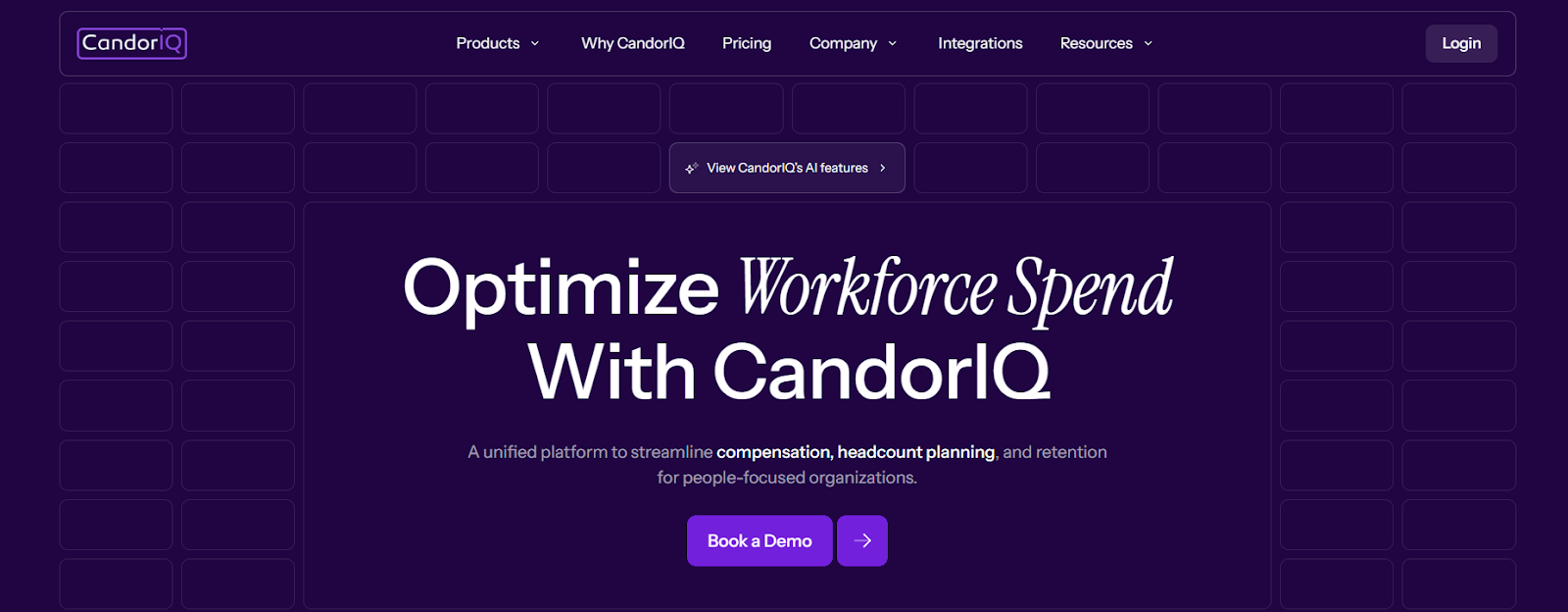
CandorIQ is purpose-built to unify HR and Finance workflows, solving fragmented compensation planning and disconnected headcount processes. It combines pay transparency, budget forecasting, and merit cycle automation into a single platform.
For growing companies, CandorIQ replaces spreadsheets with structured tools that improve pay equity, align workforce plans with budgets, and enable faster, smarter people decisions.
Key Features:
- Compensation & Payband Builder: Create geo-adjusted salary bands, control access, and visualize pay distribution across job levels.
- Compensation Cycle: Automate merit cycles, track raises in real time, and collaborate through comments and alerts.
- Candidate Offers: Present transparent compensation packages, model equity growth, and reduce HR questions via embedded FAQs.
- Headcount Scenario Planning: Test hiring plans, model org changes, and forecast budget impact before approvals.
- Headcount Requests & Approvals: Automate role requests and sync with ATS and finance tools for instant tracking.
- Workforce Management: Monitor headcount, attrition, and plan vs. actuals with customizable dashboards.
- AI Agent: Ask natural language questions, receive comp benchmarks, and generate workforce insights on demand.
2. BambooHR
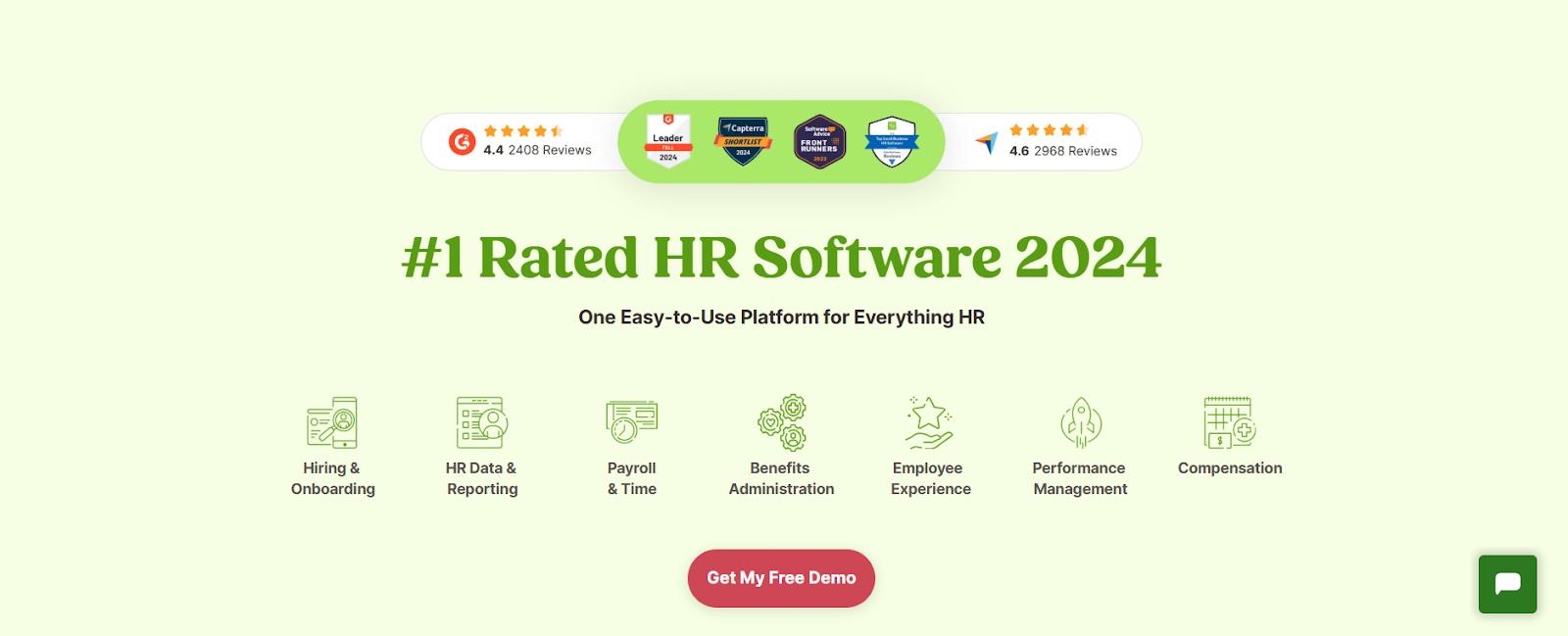
Bamboo HR is an intuitive HR suite explicitly designed for small businesses with lean HR teams. It centralizes employee records, payroll, hiring, and performance into one system with minimal setup. HR professionals appreciate its ease of use, fast implementation, and ability to automate manual tasks without requiring IT support or technical training.
Key Features:
- Centralized employee records and reporting dashboards.
- Self-service portals for PTO, pay stubs, and profile updates.
- Integrated ATS and onboarding with e-signatures.
- Workflow automation for reviews and leave approvals.
- Add-on payroll and benefits administration as you scale.
3. Rippling
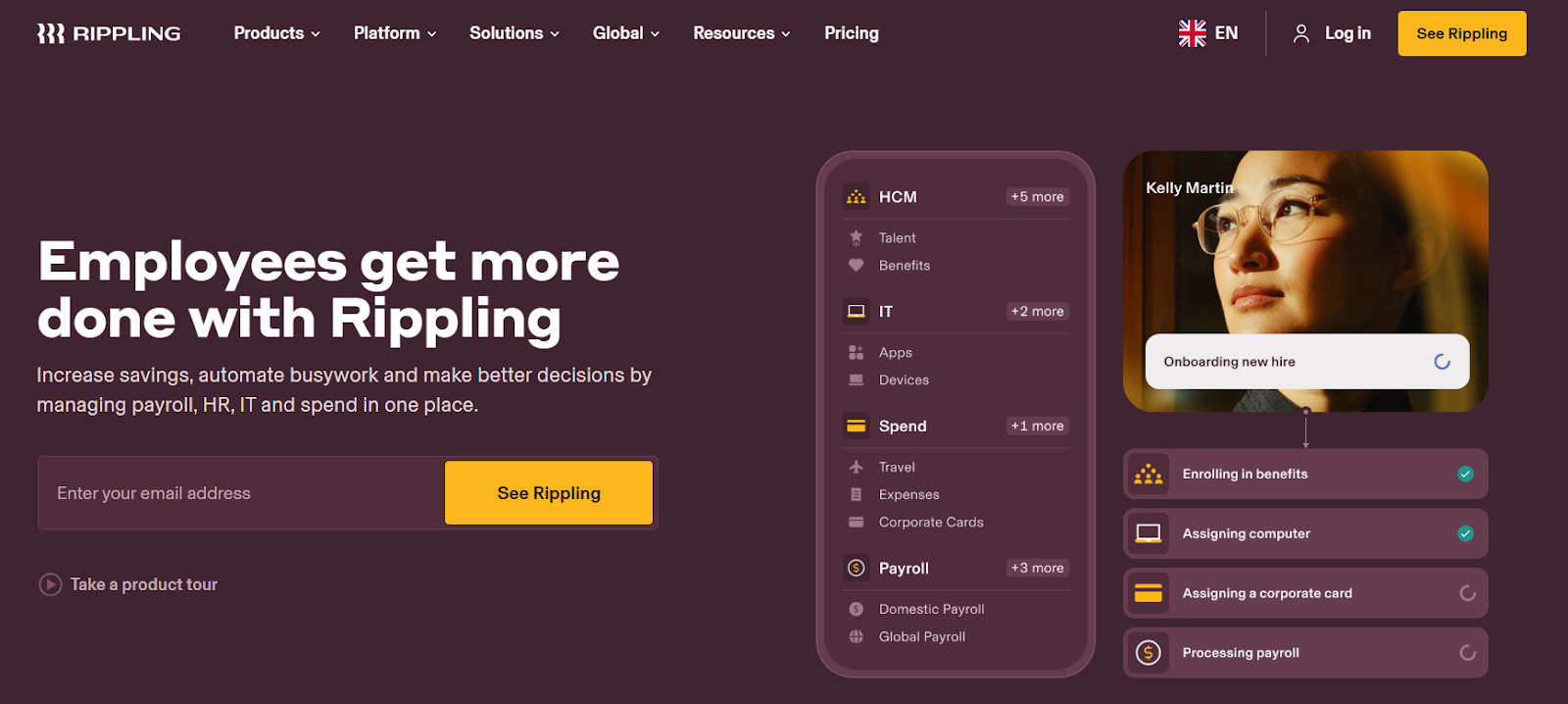
Rippling integrates HR, IT, and Finance into a single automated platform. It’s ideal for fast-scaling businesses and remote teams needing to streamline onboarding, payroll, and device management. From sending offer letters to provisioning laptops, Rippling automates workflows that would typically span multiple systems, ensuring compliance and consistency from day one.
Key Features:
- Automated onboarding, benefits setup, and device provisioning.
- Unified dashboard for payroll, PTO, and software access.
- Built-in performance reviews and 360° feedback tools.
- Headcount forecasting is linked to budget impact.
- App integrations with Google Workspace, Slack, and more.
4. Justworks
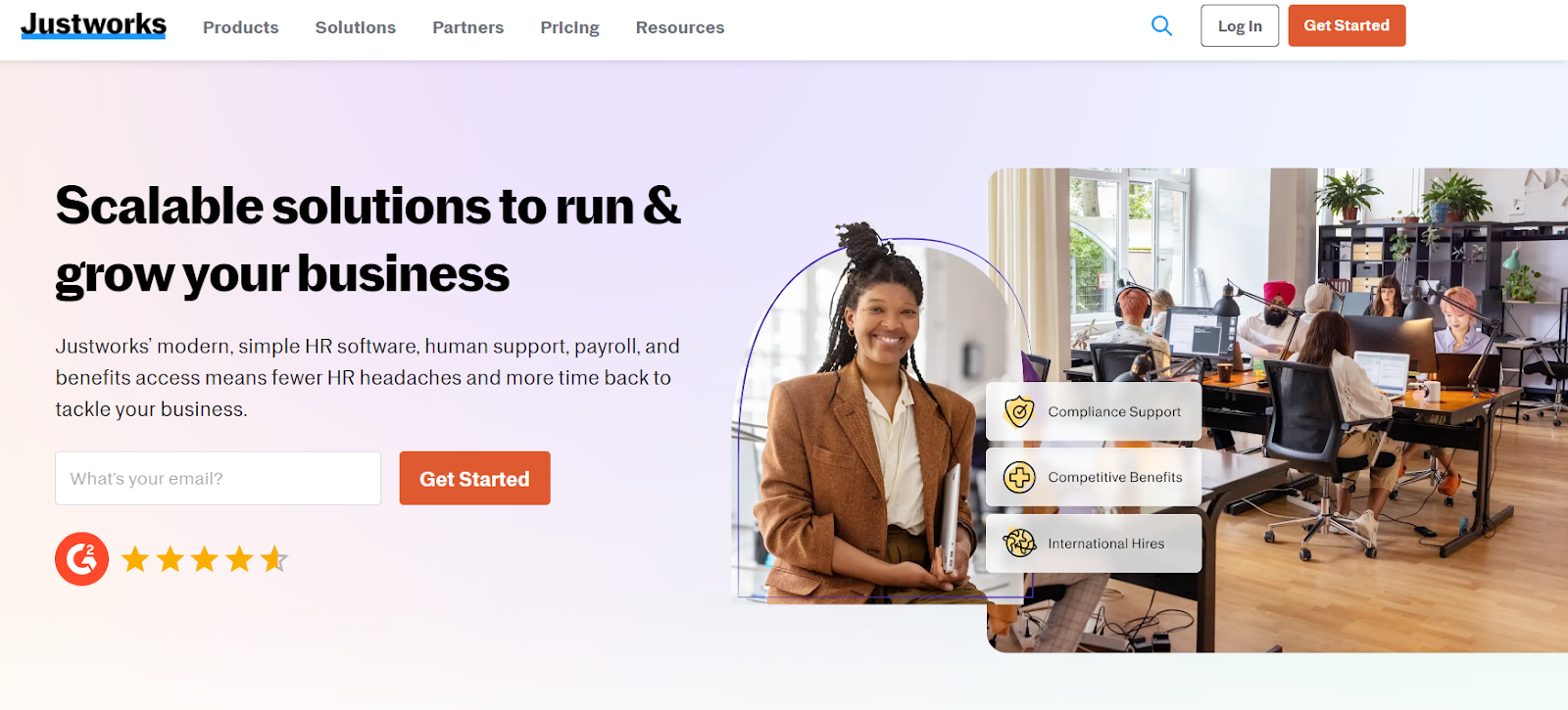
Justworks operates as a PEO, offering HR software combined with full-service payroll, benefits, and compliance support. It’s designed for startups and small companies that want to offer competitive employee benefits without managing HR infrastructure in-house. With 24/7 expert support and an intuitive interface, Justworks is a plug-and-play HR partner.
Key Features:
- Big-company benefits include 401(k) plans, health insurance, and vision coverage.
- PEO model with compliance, payroll, and onboarding tools.
- Transparent per-employee pricing with no surprise fees.
- Dedicated HR advisors and round-the-clock chat/email support.
- Centralized employee portal for time off and documents.
5. Freshteam (by Freshworks)
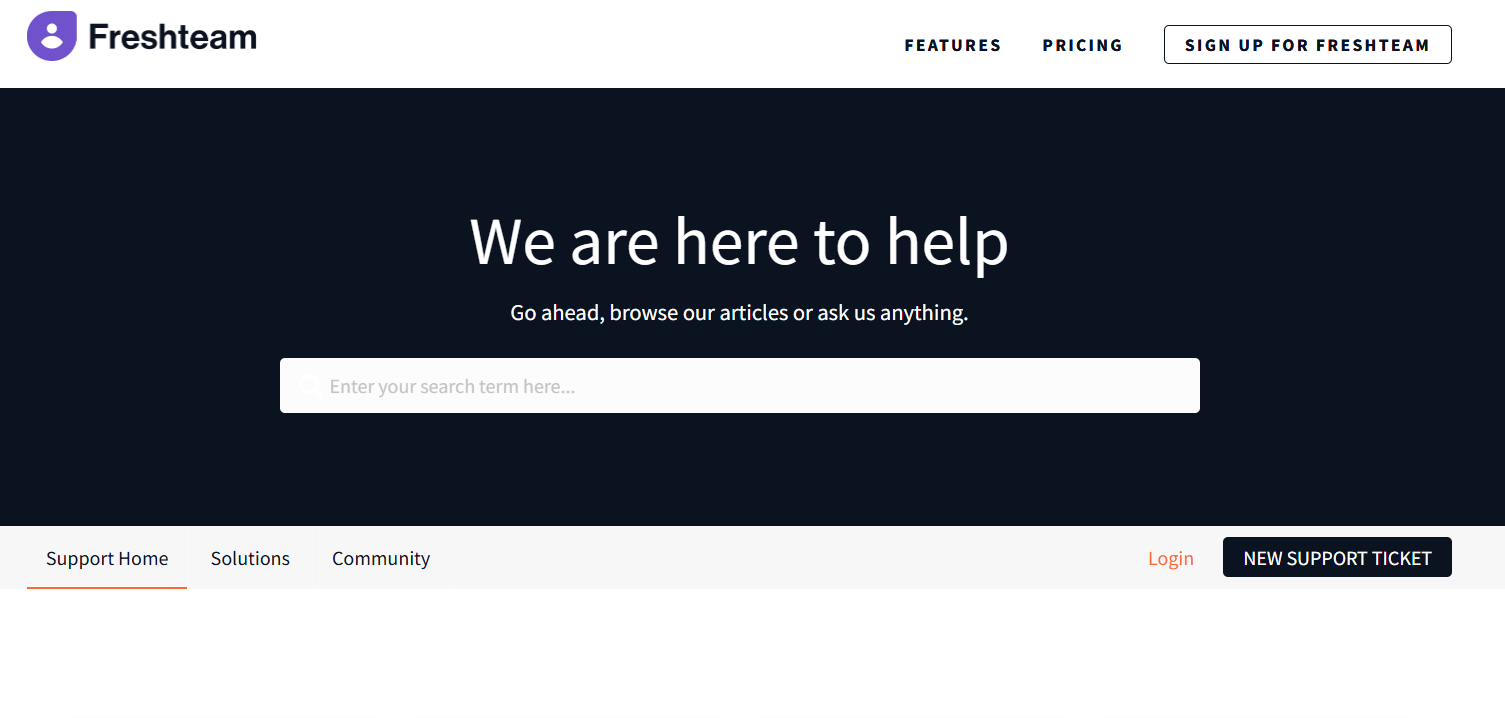
Freshteam is a lightweight but powerful HR tool designed for hiring-first teams. It combines applicant tracking with onboarding and basic HRIS functionality, providing startups and small to medium-sized businesses (SMBs) with a modern system that is both simple and cost-effective. Ideal for small teams scaling headcount, it’s also one of the few tools offering a free plan.
Key Features:
- Visual ATS for managing applicants and interview stages.
- Free plan with core features for small teams.
- Paperless onboarding with task automation and document uploads.
- Self-service PTO tracking and org chart builder.
- Easy job posting to multiple boards and sourcing tools.
6. Paylocity
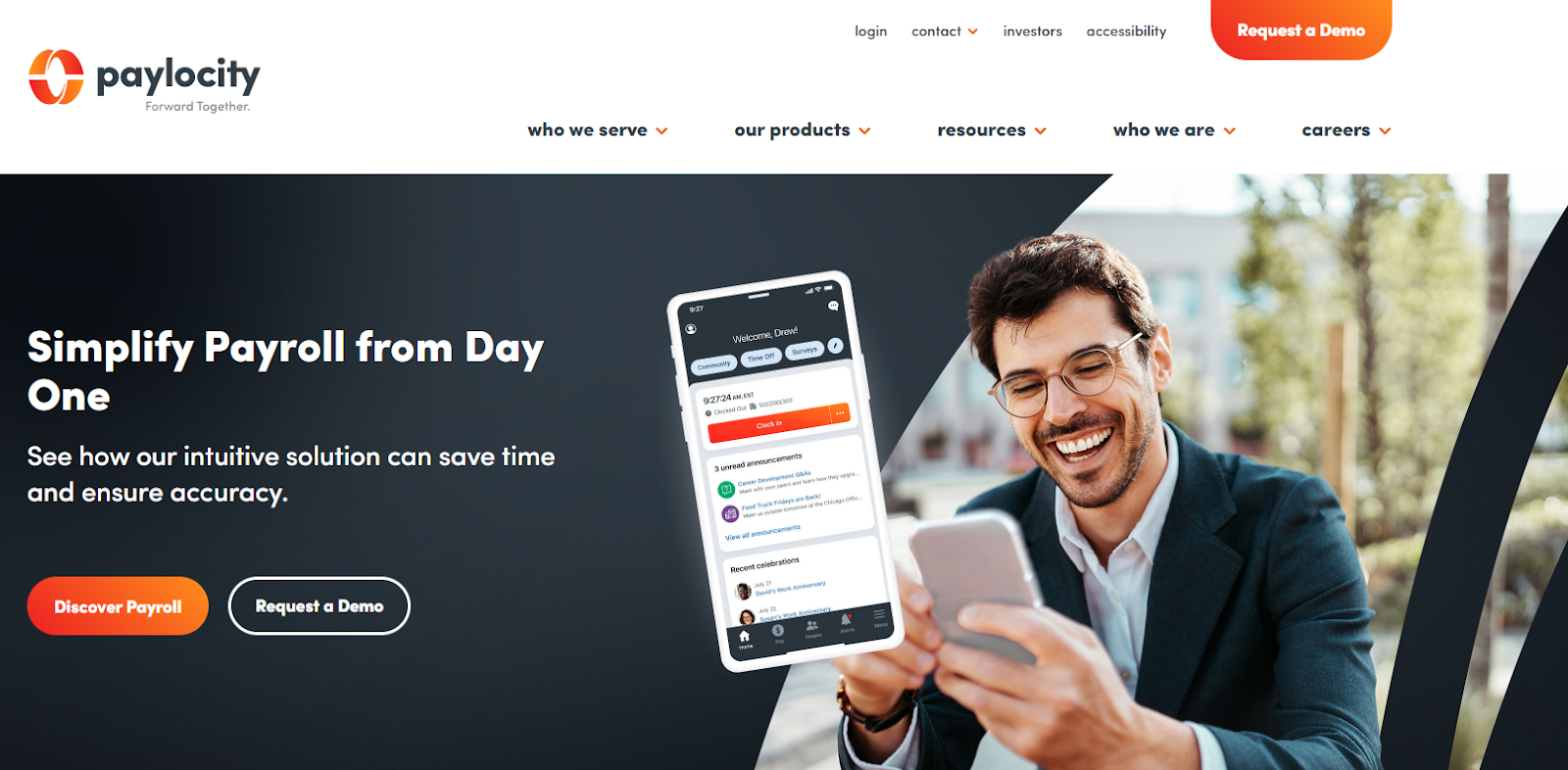
Paylocity is a trusted cloud-based HR suite known for its strong payroll engine and wide range of HR modules. Built for small to mid-sized companies, it allows organizations to streamline everything from pay to performance reviews, all within a secure, self-service environment that boosts efficiency and employee satisfaction.
Key Features:
- Multi-state payroll processing with automatic tax filings.
- Mobile-friendly employee portal for viewing pay stubs and submitting time entries.
- Time tracking, shift scheduling, and benefits enrollment.
- Talent management tools for reviews, goals, and feedback.
- Internal social features like recognition, feeds, and surveys.
7. Namely
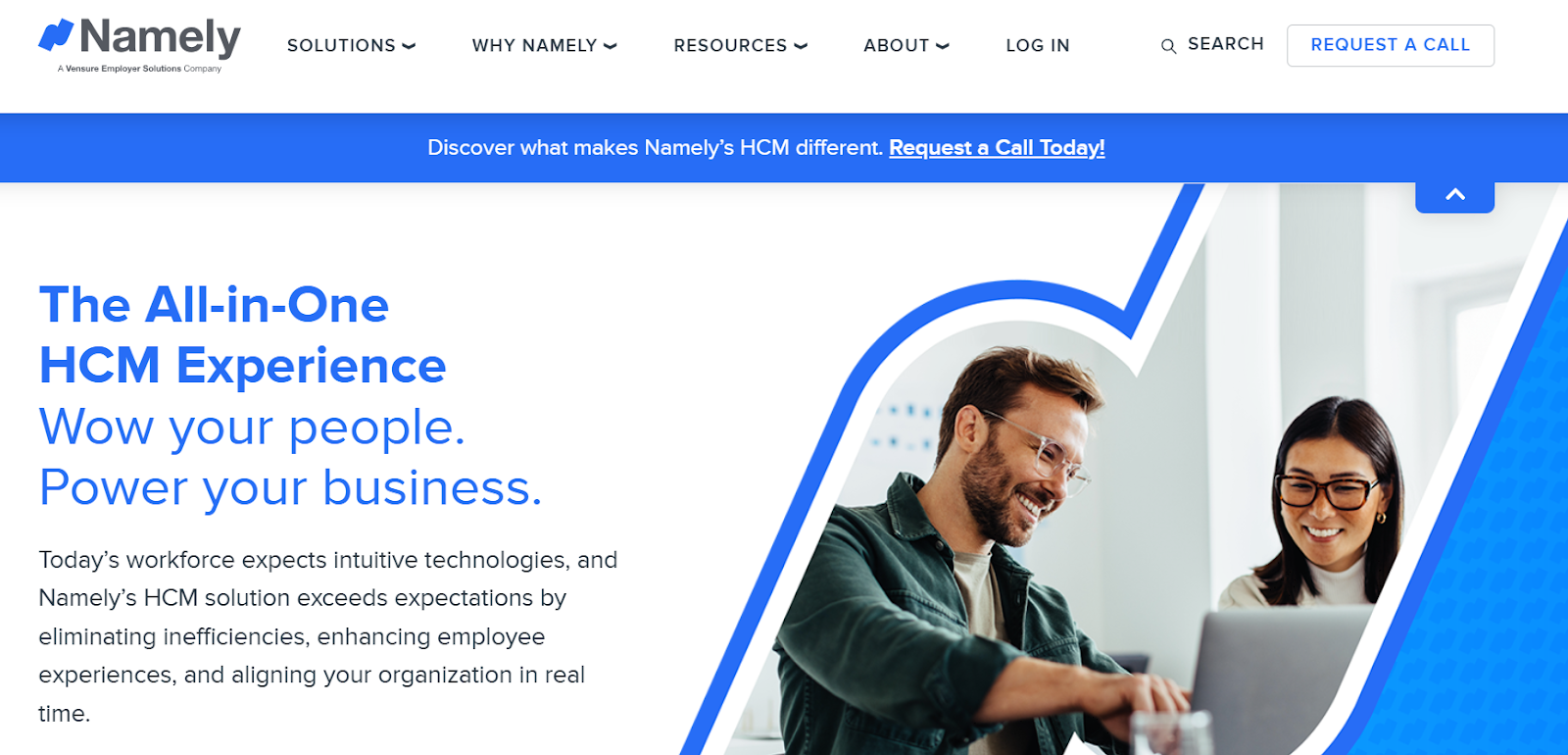
Namely offers a full-featured HCM suite tailored for mid-sized businesses that prioritize usability and engagement. It centralizes payroll, benefits, HR data, and performance in a single interface that feels social and interactive, making adoption easier for employees while maintaining professional and compliant HR operations.
Key Features:
- End-to-end HCM with payroll, benefits, and performance.
- Self-service portals with a social-style engagement feed.
- Intuitive benefits enrollment with provider integrations.
- Configurable performance review workflows and goal setting.
- Detailed analytics and permissions for secure access control.
8. Breezy HR
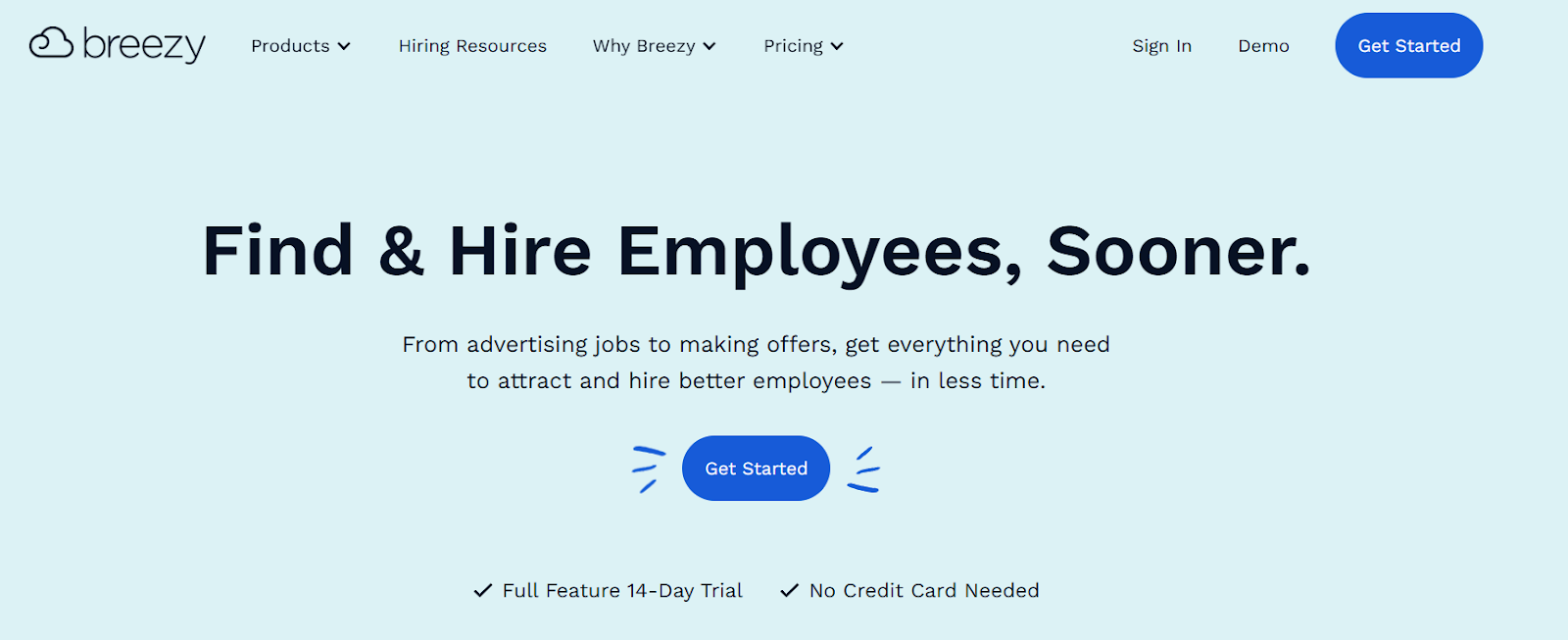
Breezy HR is an ATS built for small teams that need to scale hiring efficiently. It streamlines recruitment workflows with automation, drag-and-drop candidate pipelines, and collaborative evaluation tools. Great for growing businesses that want to shorten time-to-hire without sacrificing candidate experience or clarity.
Key Features:
- Visual pipelines for candidate tracking and team collaboration.
- Automated email sequences and scheduling.
- Resume parsing and basic AI scoring.
- One-click posting to major job boards.
- Seamless integration with HRIS and payroll systems.
9. TriNet
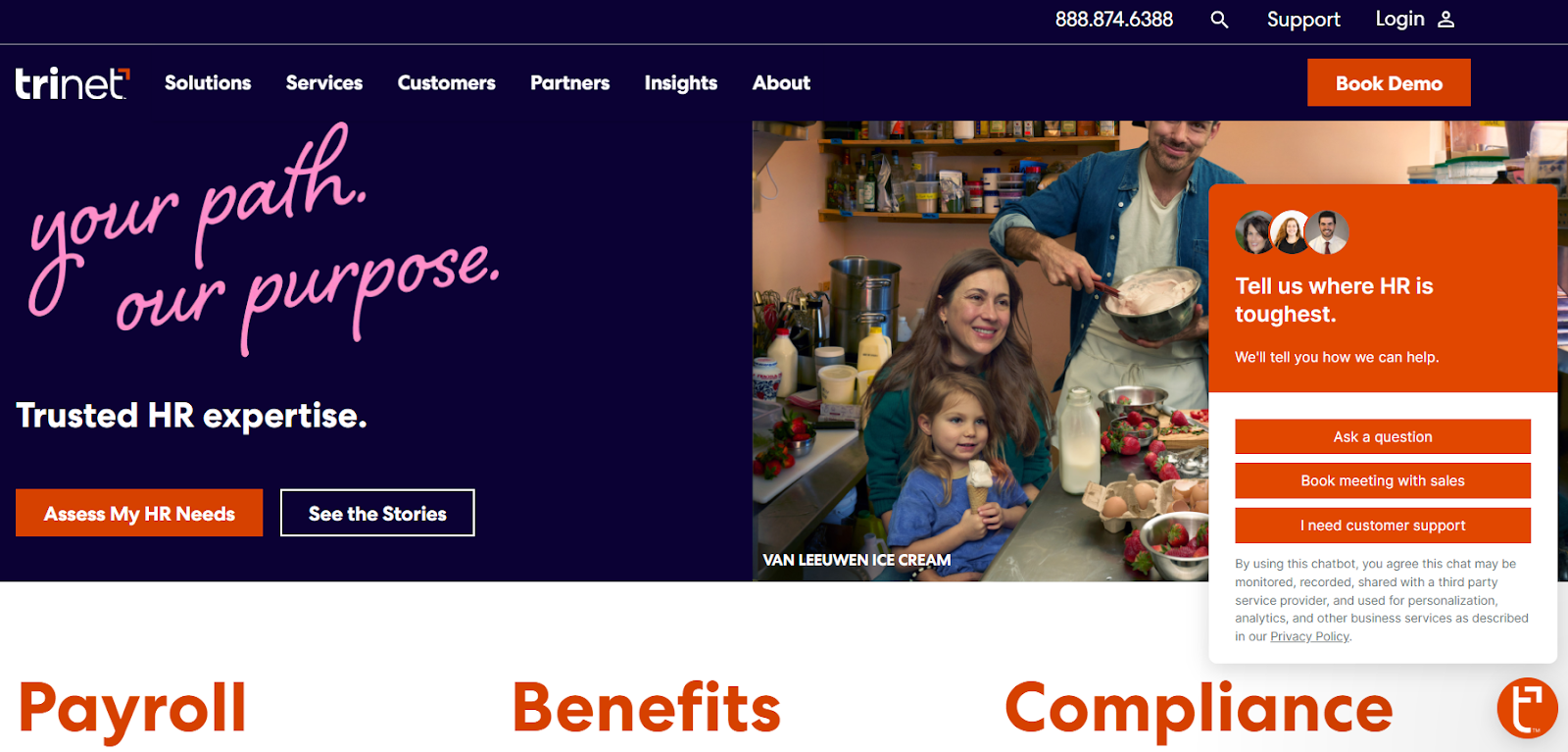
TriNet combines HR outsourcing and technology into a scalable PEO solution, ideal for small businesses in highly regulated industries. In addition to its all-in-one HR platform, TriNet offers vertical-specific consultants who guide businesses through compliance, benefits, and risk management, giving business owners peace of mind and more time to focus on growth.
Key Features:
- Full-service HR outsourcing with industry-specific expertise.
- Comprehensive benefits offering with multiple carriers.
- All-state payroll and time tracking capabilities.
- Regulatory compliance support (OSHA, ACA, wage laws).
- Recruiting tools, learning management, and employee analytics.
10. ClearCompany
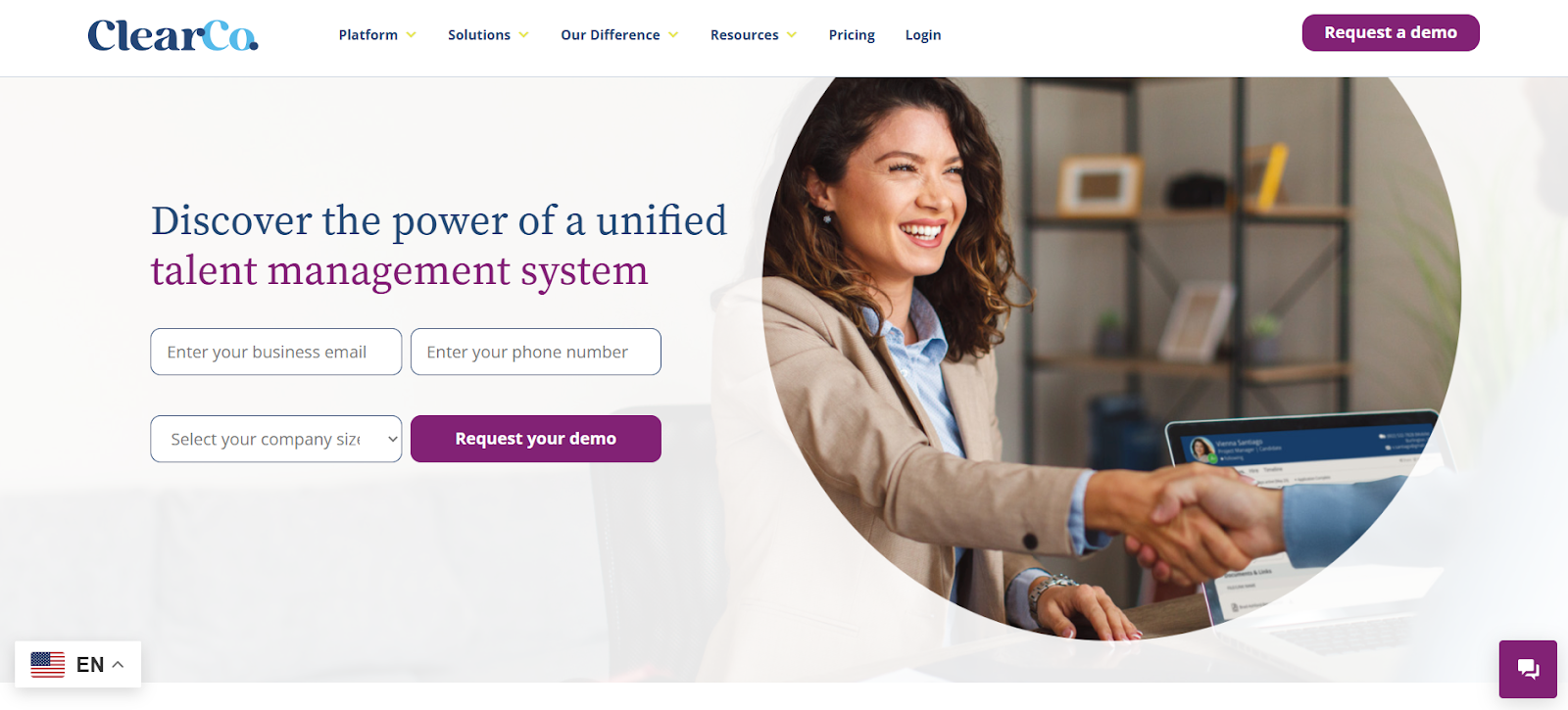
ClearCompany offers a complete talent management system, ideal for businesses looking to connect recruitment, onboarding, and performance in one place. It’s especially effective for aligning HR workflows with business outcomes, as it ties hiring insights directly into goal setting, performance tracking, and retention planning.
Key Features:
- ATS with background check integrations and pipeline tools.
- Digital onboarding for tax forms, checklists, and IT setup.
- Configurable review templates and real-time feedback.
- Goal tracking is tied to compensation and development.
- Workforce planning dashboards and compensation management.
Also Read: Understanding HRMS Analytics and Reporting for Smarter HR

Conclusion
The HR software tools featured above represent the best HR software for small businesses, each addressing a different operational gap with practical, scalable tools. From automating payroll to streamlining headcount analysis and improving employee engagement, each solution supports smarter, faster HR operations.
If you're looking for a platform that connects compensation strategy, budget visibility, and workforce planning, CandorIQ offers everything in one unified system.
SigFig, a financial services company, reduced its merit review cycle from three months to three weeks by utilizing CandorIQ's AI-driven automation, saving 240 hours of leadership time and eliminating spreadsheet chaos.
Want to see how CandorIQ can support your HR and Finance alignment? Book a demo today and discover how we help you build fair, efficient, and scalable people strategies.
Ready modernize your workforce and compensation strategy?
See how CandorIQ brings workforce planning and compensation together with AI.


